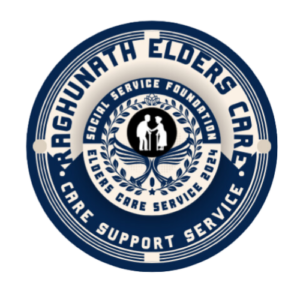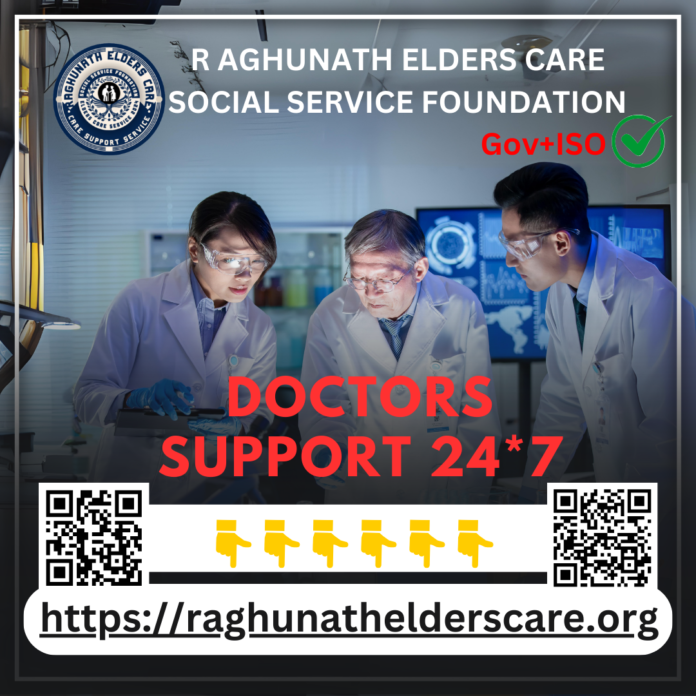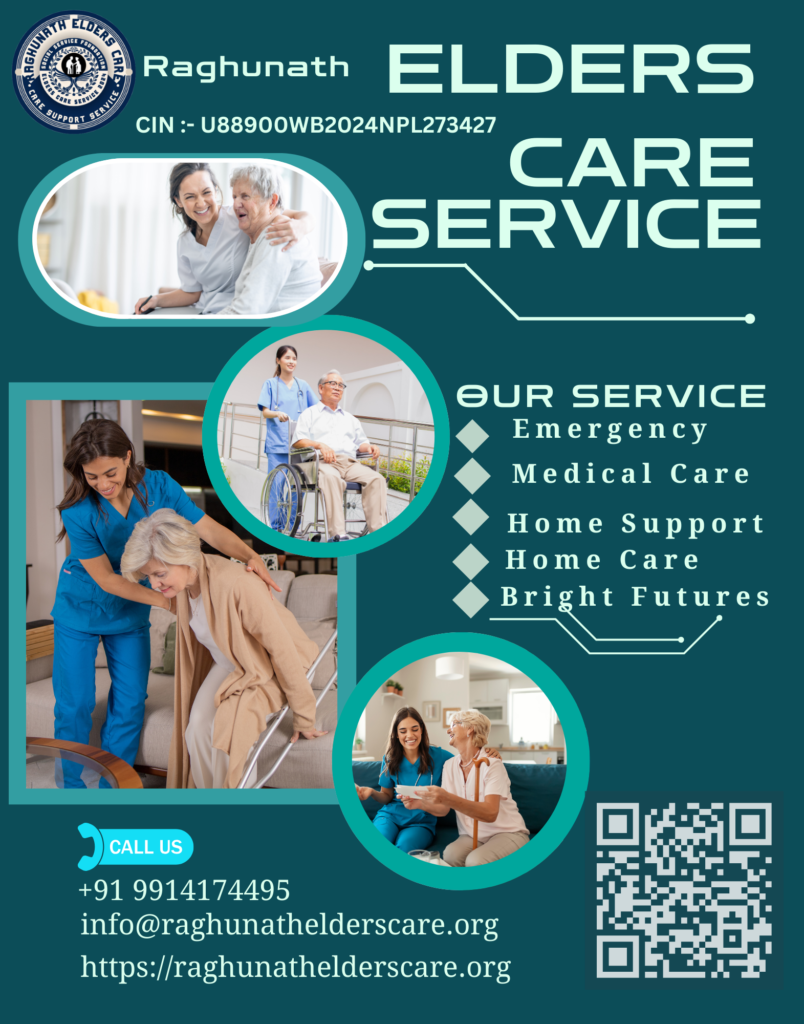- As people age, their health needs become more complex, and the risk of emergencies increases. For many elderly individuals, having access to immediate and reliable care is essential in order to ensure their well-being and safety. 24-hour emergency care for the elderly is a service designed to provide seniors with continuous support and immediate assistance during any medical crisis, whether it’s a sudden health complication, a fall, or any other unforeseen emergency.
The Importance of 24-Hour Emergency Care for the Elderly
- Emergencies can strike at any time, and for elderly individuals, these events can be especially dangerous due to declining health, mobility issues, or cognitive impairments. 24-hour emergency care for the elderly is an invaluable service because it ensures that seniors have immediate access to medical assistance and are not left alone in moments of crisis. Aging can bring about a variety of health issues such as heart disease, strokes, dementia, or chronic pain, and these conditions can sometimes lead to unexpected emergencies that require immediate medical intervention.
- Having 24-hour care available ensures that seniors are never alone during an emergency. Whether it’s a medical condition, a fall, or an acute illness, immediate assistance can make all the difference in outcomes. For families, it provides peace of mind knowing that their loved ones are being cared for, especially in times when they may not be able to provide direct support themselves.
- Additionally, elderly individuals often experience a decrease in mobility and strength, which increases the risk of falls. Falls are one of the leading causes of injury and hospitalization among older adults, and 24-hour emergency care is vital for minimizing the consequences of these accidents. With quick responses and medical attention, the potential for serious injury can be significantly reduced
Key Components of 24-Hour Emergency Care for the Elderly
24-hour emergency care for the elderly typically involves a range of services tailored to the needs of each senior. These services may vary depending on the individual’s health conditions, but common aspects include:
1. Immediate Medical Attention
One of the most crucial elements of 24-hour emergency care for the elderly is the availability of immediate medical help in case of an emergency. Seniors with chronic health conditions or age-related illnesses may need round-the-clock monitoring to quickly address health crises. Whether it’s a heart attack, stroke, severe allergic reaction, or any other urgent health concern, having medical personnel or trained caregivers available to respond instantly can significantly improve health outcomes.
Medical assistance includes:
Monitoring vital signs: Trained staff can monitor blood pressure, heart rate, and other vital signs to detect early signs of an emergency.
Emergency response protocols: Staff are trained to follow emergency protocols and provide first aid, CPR, or other critical care when needed.
Coordinating with medical professionals: In the event of an emergency, caregivers will immediately contact healthcare professionals or emergency services for fast medical intervention.
Immediate medical attention is essential for elderly individuals, especially those living with chronic conditions such as diabetes, hypertension, or heart disease.
2. Fall Prevention and Response
Falls are one of the leading causes of injury and death among elderly individuals. Seniors with limited mobility or muscle weakness are particularly susceptible to falls. 24-hour emergency care includes fall prevention measures and immediate assistance if a fall occurs. A caregiver or medical professional can be on hand to respond quickly to any falls or accidents, reducing the risk of complications such as fractures or head injuries.
Fall prevention services may include:
Home safety checks: Caregivers assess the home environment to identify and eliminate potential hazards, such as slippery floors, cluttered pathways, or inadequate lighting.
Assisting with mobility: Helping seniors with walking aids, transfers, or moving from one area of the home to another can help prevent accidents and falls.
Emergency fall response: In the event of a fall, caregivers can immediately assess the situation, provide first aid, and call for additional medical help if needed.
With 24-hour emergency care, elderly individuals are safeguarded against the risks associated with falls and are able to get immediate medical attention when required.
3. Monitoring Cognitive Health
Cognitive decline is a common challenge among older adults, with conditions such as Alzheimer’s disease, dementia, and other forms of memory impairment becoming more prevalent as people age. Seniors with cognitive impairments are particularly vulnerable to emergencies, as they may not be able to recognize when they need help or may forget to take their medications. 24-hour emergency care helps monitor cognitive health, providing ongoing supervision to ensure that the elderly individual is safe and well-cared for.
Key components of cognitive monitoring include:
Medication reminders: Caregivers ensure that the senior takes their prescribed medications on time and in the correct dosages, helping to prevent health complications.
Supervision and assistance: Caregivers can help with daily tasks, ensuring that seniors with cognitive issues do not engage in dangerous activities or forget to perform critical health-related actions.
Managing behavioral changes: In cases where dementia or Alzheimer’s leads to behavior changes, caregivers are trained to respond calmly and appropriately to challenging situations.
By monitoring cognitive health around the clock, 24-hour emergency care can help prevent emergencies related to memory loss and ensure that seniors with cognitive impairments are properly cared for.
4. Personal Care and Hygiene Assistance
Elderly individuals often struggle with personal care tasks due to physical limitations, fatigue, or cognitive impairments. With 24-hour emergency care, seniors can receive assistance with personal hygiene, including bathing, dressing, toileting, and grooming. In emergencies where an individual is unable to manage these tasks on their own, caregivers are available to provide immediate assistance.
Personal care support includes:
Bathing and hygiene: Assisting seniors with bathing or showering safely to reduce the risk of falls.
Dressing and grooming: Helping seniors dress appropriately for the weather and assisting with grooming tasks such as brushing teeth, hair, and nails.
Toileting assistance: Ensuring that seniors can use the restroom safely and hygienically, even if they require mobility assistance or have incontinence.
By providing 24-hour care, elderly individuals receive the personal care and attention they need to maintain their dignity and health.
5. Companionship and Emotional Support
For many elderly individuals, emotional well-being is just as important as physical health. 24-hour emergency care not only provides medical and personal care but also offers companionship and emotional support. Social isolation can contribute to feelings of depression and anxiety, especially in older adults who may be living alone or away from family.
Companionship services include:
Providing social interaction: Caregivers engage in conversations, offer companionship, and spend quality time with the elderly individual, reducing feelings of loneliness.
Emotional support: Caregivers are trained to recognize signs of emotional distress and offer reassurance or guidance during challenging situations.
Activity support: Engaging in enjoyable activities such as reading, puzzles, or light exercises can improve mood and mental health.
Having a companion available at all hours can help reduce the emotional burden of aging, providing the elderly with a sense of comfort and security.
Benefits of 24-Hour Emergency Care for the Elderly
24-hour emergency care for the elderly offers several benefits that make it an invaluable option for seniors and their families:
Immediate Assistance: The primary benefit of 24-hour emergency care is the ability to receive immediate help during a medical crisis. Whether it’s a fall, a medical emergency, or sudden health issues, seniors have someone available at all times to respond quickly and effectively.
Improved Safety and Well-Being: With ongoing supervision and fall prevention measures, the risk of accidents and injuries is significantly reduced. Seniors can also feel more secure knowing that help is just a call away.
Peace of Mind for Families: Families who are unable to provide 24-hour care themselves can rest assured that their loved ones are receiving the necessary care and attention. This reduces stress and provides peace of mind to both seniors and their families.
Preserved Independence: Despite requiring emergency care, seniors can continue to live in their own homes with a high level of independence. They receive the support they need without having to move to an institutionalized setting, which allows them to maintain a sense of dignity and normalcy.
Enhanced Health Outcomes: With immediate medical attention and ongoing monitoring, elderly individuals are less likely to experience severe complications from medical emergencies. Quick responses can prevent adverse health outcomes and improve recovery times.
Conclusion
24-hour emergency care for the elderly is an essential service that ensures seniors receive immediate assistance and ongoing care during times of crisis. Whether it’s providing medical attention, preventing falls, offering companionship, or assisting with personal care, the services provided through 24-hour emergency care are crucial for maintaining the health, safety, and well-being of elderly individuals. This level of care offers peace of mind to families, improves safety, and helps seniors live more independently and comfortably in their own homes. As the elderly population continues to grow, 24-hour emergency care will remain a vital part of supporting seniors in aging with dignity and security.





